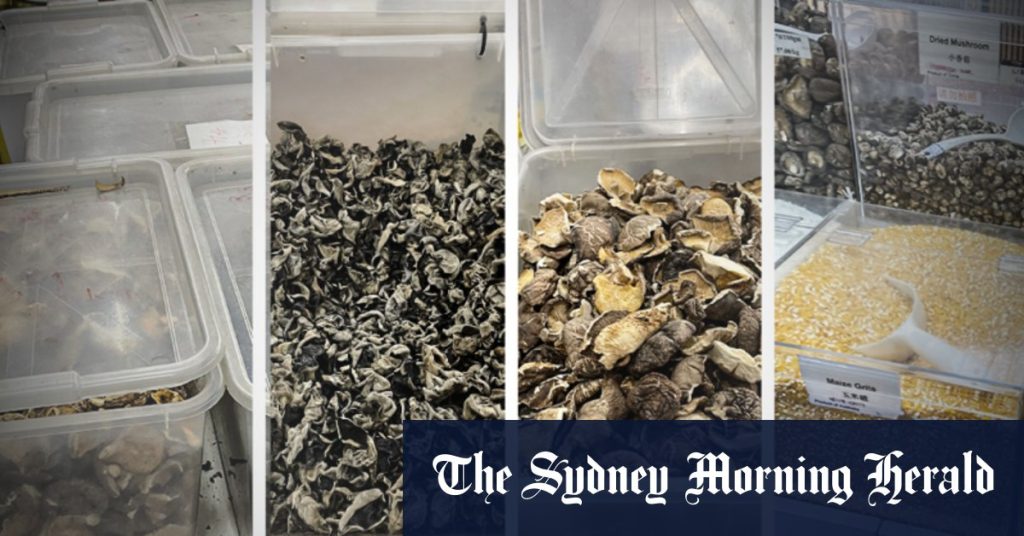The Age discovered dried mushrooms being sold without labels in plastic bins at independent grocery stores in Melbourne’s suburbs, with unclear product information and translations referring to them as “high-grade fungus” or “red-brown fungus”. While unpackaged foods like dried mushrooms do not require labels, sellers must provide a specification sheet with details such as grower, region, allergens and test results according to the Australia New Zealand Food Standards Code. Australians consume over 70,000 tonnes of mushroom products annually, mostly imported from South Korea and China by a few importers, yet the Department of Agriculture has not implemented any safety monitoring regime despite health and safety risks.
Food Standards Australia New Zealand (FSANZ) raised concerns in 2022 after a listeria outbreak in the US and Canada linked to imported enoki mushrooms, proposing surveillance testing at the border. However, the Department of Agriculture admitted lacking a framework to manage this process and expressed reluctance to introduce the scheme due to cost concerns and operational challenges. Enoki mushrooms are prone to carrying listeria bacteria, which can lead to severe illness, death, and pregnancy complications. A national survey in 2023 found 11% of imported enoki mushroom samples positive for listeria, highlighting the risk to public health.
Between 2017 and 2020, six people became ill and one died in Australia after consuming contaminated enoki mushrooms linked to an outbreak in North America. The deceased purchased imported mushrooms from Korea at a local supermarket. The department issued a public alert in 2023 about the health threat posed by enoki mushrooms and has since conducted recalls for contaminated products, including those with packaging issues and dangerous levels of bacteria. Authorities also discovered a shipment of contaminated enoki mushrooms in Victoria from an unregistered supplier.
A study by the Chinese Centre for Disease Control and Prevention revealed numerous mushroom poisoning incidents in China, leading to illness and deaths. In response, Canada and the US have implemented stricter measures for enoki mushroom imports from South Korea and China to prevent listeria contamination. The United States has also seen cases of serious illnesses like listeria and salmonella from imported mushrooms served in restaurants or sold to consumers. In Australia, hospital admissions for mushroom poisoning have increased, with most incidents occurring in metropolitan areas sourced from the wild, fields, or gardens.
The lack of safety monitoring for imported mushrooms in Australia poses a significant risk to public health, as highlighted by the listeria outbreak linked to enoki mushrooms. Improved surveillance and testing at the border are necessary to prevent illnesses and deaths from contaminated mushrooms. Implementing stricter regulations and enforcement measures, similar to those in Canada and the US, could help protect consumers from harmful bacteria in imported mushrooms. It is essential for the Department of Agriculture to prioritize public safety and take action to ensure the quality and safety of mushroom products available in the Australian market.


